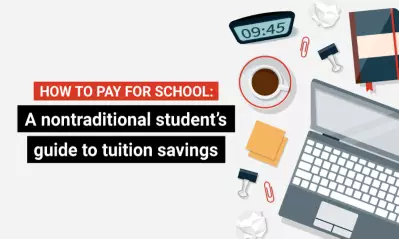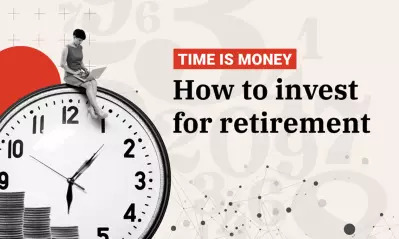What should you do with your tax refund?

Written by Elizabeth Exline

The short answer is this: Save 20 percent and, if you’re pursuing higher education, invest the rest in paying for school. But, as with school, money and life in general, there are really no short answers.
"It’s almost like people sometimes think they’re winning the lottery when they get a tax refund," says Cami Powell, a University of Phoenix (UOPX) alumna and accounting specialist. "But my mindset is, ‘That’s my money. It’s like an interest-free loan to the IRS.’ So, when that tax-return money comes in, you have to really put a check on what the reality of your situation is and how you can make the best use of that money."
Powell deals with situations like these every day. Her company offers outsourced CFO services to nonprofit organizations while also providing CFO training and mentorship.
Personally, she graduated from UOPX in 2009 with a bachelor’s degree in accounting. Then she returned to earn her MBA, all while juggling outside obligations to family and work. So, when it comes to balancing needs and desires with a potential windfall, Powell understands better than anyone how to circumvent common pitfalls.
Focus on education
"Some people get that money," she says, "and they want to go out and buy a TV, but if you invest it in education, that will increase your earning potential forever … A TV is going to last a couple years. No one is going to take away your continuing education."
More to the point, investing in your education is exactly that: an investment. "As you’re going to school," Powell says, "that wage you’re making now, that may feel really small and not be able to cover a lot. But that may be temporary."
Information from the U.S. Bureau of Labor Statistics (BLS) supports this. Data from across the country (not specifically one school or university) reveals that people with bachelor’s degrees earned a median usual weekly earning of $1,493 , while high school graduates earned $899.
Make a budget
Powell lives according to her savings model and teaches it to her own children. (They’re held to an even stricter standard than the 80/20 model: Powell expects them to save half of anything they get.) But Powell’s mindset was born of a reality many students can relate to: When you support a family, hold down a job and go to school, every dollar has to be accounted for.
So, Powell says, account for it with a budget. "If you’re going to online school, you already know how to budget your time," she says. "If you can budget your time, you can budget your money."
When it comes to a tax refund, she says, put it to work for you. And if you’re worried you can’t resist the temptation to splurge on something else, share your plan with someone who can hold you accountable. It’s akin to a new exercise plan or quitting smoking. When you tell someone about your plans to devote 80 percent of your tax refund to paying for school, you’re more likely to stick with it.
Create an emergency fund
Of course, the reality is that not every tax refund comes as a windfall. For many people, a tax refund might be too small to do much of anything with. Or it might come on the heels of debt notices. Or it might be just enough to cover that month’s bills.
"I’ve been in that position," Powell says. "You’re stretched thin, and you get this tax refund. You can use that to eliminate some debt, if possible, so that you reduce the stress of that tight budget."
And if paying down debt seems like the opposite of using your refund to invest in your education, think again. Stressing about finances, Powell points out, can lead students to give up on school altogether. It’s better to alleviate some of that stress in the short term so that you can meet your long-term goals of higher education.
It’s also wise, Powell adds, to set aside a little here and there for an emergency fund. (Part of your tax refund could even make up the initial deposit in a savings account.) Not only is a rainy-day fund a good idea for unexpected expenses like medical bills and car repairs, it also gives you the peace of mind you need to focus on improving your situation with a degree.
What to do when you owe money to the IRS
For some, the quandary of how to spend a tax refund would be a welcome alternative to the reality of owing taxes. When that happens, Powell says, don’t stress. "I say this to everyone every day. Maybe you’re in a situation that isn’t ideal for your finances. It’s not forever. You’ll pay it off."
First, Powell advises changing your withholdings. You can adjust your withholdings at any time by asking your employer or tax advisor. Then, it’s a matter of paying what you can, getting on a payment plan if necessary (yes, this is possible through the IRS) and making a realistic budget for the future.
"Be proactive about how you manage your money for the future, for the better," Powell says. The future, after all, can pay out dividends when you invest in yourself.
Get on the right side of your tax refund. Figure out how much you should be withholding here.
Need help with the financial side of planning for school? We’ve got you!
The opinions here are those of Powell and do not reflect the viewpoints of UOPX. Please consult a tax professional for your specific situation.

ABOUT THE AUTHOR
Elizabeth Exline has been telling stories ever since she won a writing contest in third grade. She's covered design and architecture, travel, lifestyle content and a host of other topics for national, regional, local and brand publications. Additionally, she's worked in content development for Marriott International and manuscript development for a variety of authors.
Read more articles like this:



